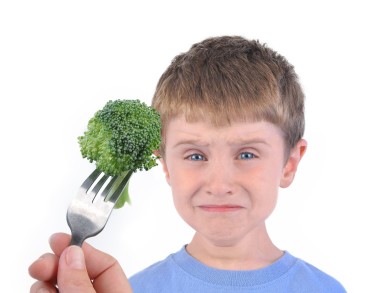 Children who are very particular about what they eat may be at a heightened risk for social anxiety and depression, according to a new study.
Children who are very particular about what they eat may be at a heightened risk for social anxiety and depression, according to a new study.
According to researchers, preschoolers who were classified as severely selective eaters were more than twice as likely to be diagnosed with social anxiety, depression and generalized anxiety disorders than non-picky eaters.
“This finding highlights the importance of clinicians looking at selective eating as perhaps not an acute problem that will go away on its own as the child gets older but a condition that should be intervened on and monitored for progress over time,” said S. Skylaw Griggs, MS, RD, LDN, a clinical nutrition specialist who was not involved in the study. “As a clinician, I will be more apt to screen for selective eating behaviors in those patients with a diagnosis of anxiety and depression.”
Selective Eating Study
For the study, researchers examined nearly 1,000 children between the ages of 24 months and 71 months and polled their caregivers on their eating habits. Selective eating habits were measured on a 3-point scale, where 0 was classified as no restrictions, 1 meant the child had some food reservations, and 2 meant that “eating with others was difficult because of the extreme limited range.” Additionally, in-home assessments were completed from January 2007 to December 2010, and caregivers were asked to complete the Preschool Aged Psychiatric Assessment upon completion of the assessments.
After looking at the assessments, researchers concluded that kids who were severely selective eaters had a nearly two-fold incidence of social anxiety disorders. Dr. William Copeland, co-author of the study, said the findings suggest parents need to be patient with their children’s food habits and work with their pediatrician to come up with creative ways to introduce kids to new foods.
“When you’re working with children this young, it’s not about applying some treatment to the child – it’s about learning parent response to the child and what they can do that might be helpful in resolving this situation,” said Copeland. “It’s more sort of a dynamic intervention and that may require more time than the pediatrician has.”
Dr. Copeland also cautioned parents not to overreact if their child isn’t overly eager to try a host of new foods. In fact, he says picky eating is a relatively common parental concern, but he urged patience, family-based treatment strategies and general monitoring of behavioral and emotional states away from the dinner table.
“This is kind of a general risk factor,” said Copeland. “We want to find out whether these continue to be markers for kids with emotional problems.”
Dr. Silverman comments
I know the story doesn’t prove causation, but it’s certainly an interesting finding. Again, not every child who doesn’t want to eat his or her broccoli is at an increased risk for depression, but if your child only eats mac and cheese, seeking additional help may be beneficial.
They key is to remain patient and encourage a slow transition to other foods.